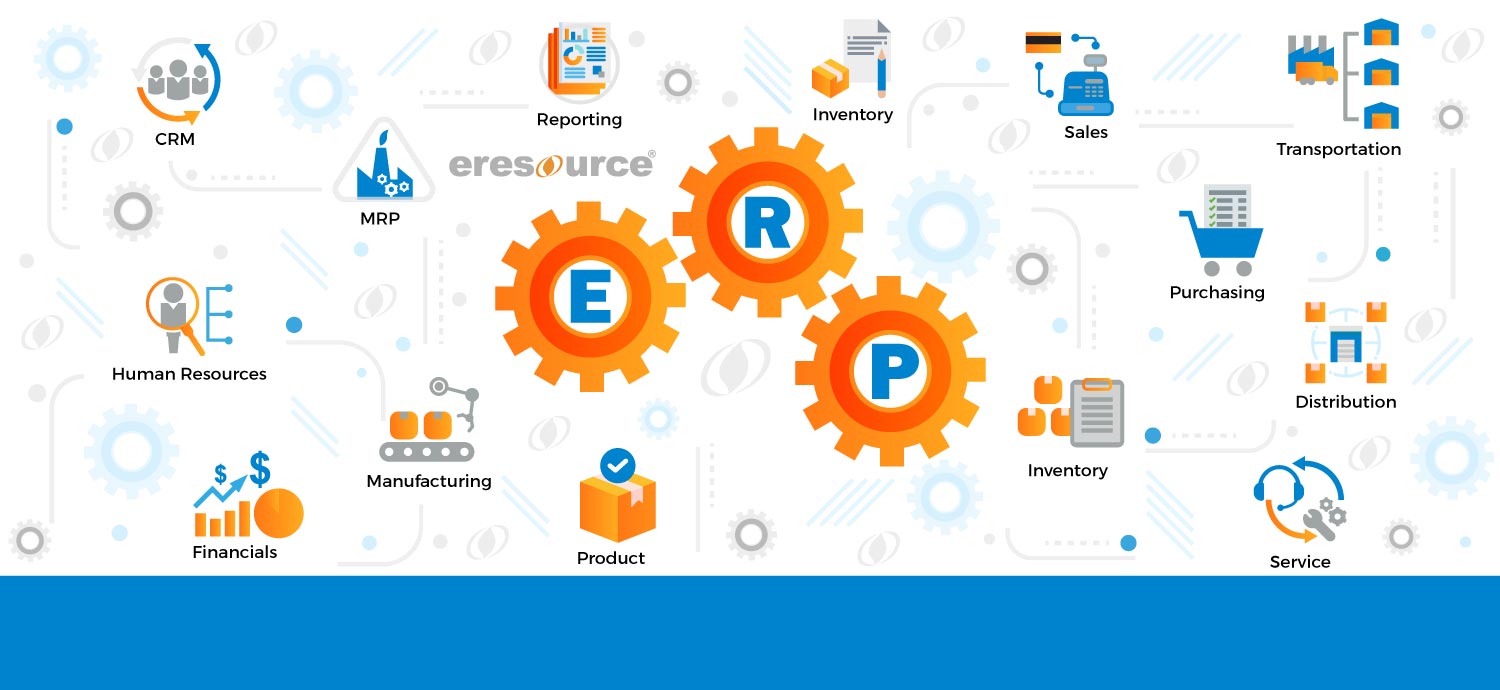Basic Features of ERP
Comparing mid-market ERP packages is not exactly an apples-to-apples type of exercise. Each vendor wraps its mid-market offering with different functionality, tailored to the needs of the kinds of companies the solution is intended for and based on the vendor’s particular areas of expertise.
However, almost every mid-market ERP suite shares several basic features of ERP modules: BI, CRM, Financial Management, HCM, Manufacturing Operations and SCM. The differences among solutions tend to be quite granular within these modules. Also, even if different packages offer the same feature – say, sales-order management – it might not be bundled in the same module; some vendors include sales-order management in their CRM suites while others package it in their SCM suites.
Key to an ERP package is tight integration between modules, so that all of the core business modules are related. For instance, manufacturing operations are integrated with customer service, logistics and delivery.
Also Read – Advantages of ERP solution in printing industry
Basic Features of ERP Software are:
-
• Business Intelligence
One of the newer components of most modern mid-market ERP packages, BI shines a bright light into the heart of a company’s performance. In general, an ERP suite’s analytics or BI tools allow users to share and analyze the data that the ERP applications collect from across the enterprise from a unified repository.
The end result is more informed decision making by everyone from executives to line managers to human-resources professionals to accountants. A variety of automated reporting and analysis tools can help streamline operations, as well as improve an organization’s business performance.
With greater control and visibility of data across the enterprise, business leaders can better align the company’s operations with its overarching strategic goals.
-
• CRM (Customer Relationship Management)
CRM has long been a core component of any ERP offering, giving manufacturers a way to improve customer service by pulling together tools to fulfill customers’ orders, respond to customers’ service needs, and often, create marketing campaigns to reach customers. Most vendors include sales tools to provide customers with sales quotes, process their orders and offer flexible pricing on their products.
Another important CRM component is service management, which may arm customer-service agents with scripts for talking to customers, as well as allow them to authorize product returns and search a knowledge base of support information. The third main component is usually marketing, which may include tools to manage campaigns, create sales literature and develop a library of marketing collateral.
Additionally, CRM often has tools for account management, SFA, and opportunity or lead management, as well as self-service tools for customers and an e-commerce storefront builder.
Also Read – ERP Software streamline the cosmetic manufacturing process?
• Financial Management
Of all the ERP modules, the financials applications tend to be the most frequently utilized. Across the board, these include general ledger, accounts receivable and accounts payable, billing, and fixed asset management. Because many mid-market companies deploy ERP to support efforts at breaking into global markets, it is imperative that their ERP packages support multiple currencies and languages.
The financial-management applications may also include tools for creating and adhering to budgets, cash-flow management, expense management, risk management and tax management.
• HCM (Human Capital Management)
For the most part, the HCM module includes tools for human-resources management, performance management, payroll, and time and labor tracking. Some vendors also provide functionality for administering benefits, managing compensation, dealing with salary taxes, recruiting new employees and planning workforce needs.
Some also include self-service tools for managers and employees. Even though HCM is generally considered core ERP functionality, some vendors offer it as an add-on module.
Also Read – ERP Software in India
• Manufacturing Operations
The manufacturing module is where much product differentiation happens, including industry-specific functionality. In general, these applications are intended to make manufacturing operations more efficient and simple.
Most vendors support different modes of manufacturing, include configurable product capabilities, perform different types of job costing and offer a BOM (bill of materials) tool.
Applications often include PDM (Product Data Management), CRP (Capacity Requirements Planning), MRP (Materials Requirements Planning), forecasting, MPS (Master Production Scheduling), work-order management and shop-floor control.
Also Read – How can cloud ERP help solar installers reduce soft costs?
Categories
Register for Free Demo!
Recent Post
-

eresource ERP 360 - an
11th Apr 2019 -

A competitive ERP system for
17th Apr 2019 -

Auto components manufacturing industry has
17th Apr 2019 -

Make the best use of
17th Apr 2019







